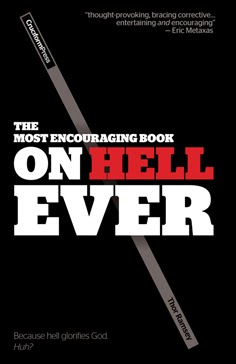I'm sure you've heard this one. "The Bible says "do not fear" exactly 365 times. That's once a day for every day of the year! Isn't God great?"
Well, it's a cute idea, but is it true? I've looked myself for every variation of the "fear not", "do not be anxious", etc. and don't come up with nearly that many. I've researched and found others who came up with more than I did, but still not 365. The only people who claim 365 don't provide an actual list to back it up (if you know of one, please let me know and I'll retract all of this!). Furthermore, the Hebrew calendar had anywhere between 353 and 383 days a year, so the 365 only affects us New Testament era folks. Poor Old Testament saints didn't get that promise, I guess.
Here's the point: How important is it that we use truth when teaching the Truth? When presenting the gospel, how important is it that we share stories, illustrations, quotes, etc. that are actually true?
How about the center of the Bible deal? Google it, I'm sure it will come up. The claim is that Psalm 118 is the center of the Bible and that 118 is the center verse, which says, "it is better to trust in the LORD than to put
confidence in man." The story then says: "The next
time someone says they would like to find God's perfect will for their lives
and that they want to be in the center of His will, just send them to the
center of His Word!"
Cute. Except the center chapter is actually Psalm 117. The center verse is actually Psalm 103: 2, out of 31,101
total verses (depending on translation). Psalm 118:8 isn’t even the center verse of that chapter. But don't let the facts get in the way of an inspiring "truth." A couple other examples:
Years ago I repeated the story of James Bartley in a sermon. I've since repented. If you haven't heard it, the story says this sailor went overboard, was swallowed by a whale and live to tell about it! It was repeated in novels by well known authors, and has been used for decades to "prove" that Jonah's story could happen. The problem? One, research has shown the story to be a fabrication. And two, why do we need some modern story to "prove" the Bible? Do we have to go find someone else risen from the dead to "prove" the Resurrection?
Or how about those questionable attempts to "prove" Joshua's "missing day?" Seems to me the truth of God's Word should stand on it's own without any need for us to prove it with modern stories, NASA computers or anything else.
But the question still remains, is it ok to repeat falsehoods as long as we're just trying to illustrate the Truth. Take this example. There is a well known story about a little homeless boy who is directed to a house that can help him, and all he has to do is mention "John 3:16." The point of the story is that the love of God demonstrated by his children to those in need is a beautiful thing. It's a sweet story. But is it true?
Well, I've seen many variations of the John 3:16 story. Most say the boy was in Chicago. A few say New York. One version of the story makes it an Irish tale in Dublin. I found one site that sells a little children's story book, but it's unclear whether it's just a story or if it's based on truth. We even had a speaker come to our church and claim this happened in one of our Baptist Children's Home. Ouch!
There's the point again. It's ok to tell stories and use illustrations, as long as they are told as stories and illustrations. But when we start claiming things as facts, does that undermine the very Truth we are telling? Don't you think it makes Christians look foolish and gullible at least, and just dishonest at worst?
Now, I admit that sometimes it's easier to repeat the story or the "fact" than to check it out. I wasted quite a bit of time trying to research some of these things over the years. But I think it's worth it to be sure we're sharing truth and not just amusing anecdotes.
My last post was a cry for discernment in the church. Let's not buy into and pass along every little thing just because we read it on the net, etc. This is more a cry for integrity. Let's be sure that the things we claim as true are true, not just cute. It's not enough for it to be inspiring or clever or goose bumpy. Let's make sure that as people whose lives have been changed by the Truth of Christ, that our lives reflect truth as much as possible.







